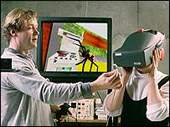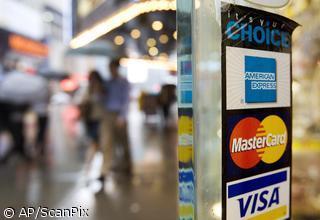President Clinton proposed boosting government spending on computer security by some $280 million as part of a long-term plan to guard against threats ranging from hackers to terrorists.
Published:
9 January 2000 y., Sunday
Clinton_s plan to defend America_s "information infrastructure," includes a $160 million increase in spending on computer security research, college scholarships for students who agree to work for the government as security specialists and plans to share public and private research.
Potential threats ranged from the hobbyist-hacker to countries or terrorists attacking U.S. computer systems to cripple the economy, said Richard Clarke, head of counterterrorism for the U.S. National Security Council.
Republicans involved in the issue generally welcomed the plan, but said it came late and fell short in some areas. The White House had targeted a May 1999 deadline, and officials said on Friday they needed more time to do the job right.
Clinton will request $2.03 billion for computer security in his 2001 budget request next month, up from $1.75 billion in 2000, White House Chief of Staff John Podesta told reporters.
Included are boosts in research spending on information security to $621 million from $461 million, and $91 million in new initiatives. Other related increases brought the total spending increase next year to $280 million, officials said.
Clinton proposed offering college scholarships to students in the field of computer security in exchange for their government service afterward.
Starting pay for such recruits, who are in high demand in the private sector, may need to be sharply increased from existing government pay scales, Clarke said.
Clinton also proposed an institute to fund research in areas not pursued now by either the public or private sector.
Copying, publishing, announcing any information from the News.lt portal without written permission of News.lt editorial office is prohibited.
The most popular articles
Software company announced new structure_ of it_s business.
more »
 Microsoft's Bing search engine will be the sole provider of search and paid search technology for all of Yahoo's websites. Yahoo will sell premium search ads for both companies.
more »
Microsoft's Bing search engine will be the sole provider of search and paid search technology for all of Yahoo's websites. Yahoo will sell premium search ads for both companies.
more »
 Thales UK today announces that its Cat III Instrument Landing System (ILS)1 has received UK approval for installation at Bournemouth Airport.
more »
Thales UK today announces that its Cat III Instrument Landing System (ILS)1 has received UK approval for installation at Bournemouth Airport.
more »
 Postbank customers can now pay their fuel bills at Shell service stations and withdraw cash as stations in Hamburg, Germany, have been converted to the new technology from Wincor Nixdorf International.
more »
Postbank customers can now pay their fuel bills at Shell service stations and withdraw cash as stations in Hamburg, Germany, have been converted to the new technology from Wincor Nixdorf International.
more »
 Japanese company Crescent has simulated a series of emergency situations that people may have to deal with in the workplace. By practicing with these simulations they can learn how to cope with a real-life crisis.
more »
Japanese company Crescent has simulated a series of emergency situations that people may have to deal with in the workplace. By practicing with these simulations they can learn how to cope with a real-life crisis.
more »
 The touchscreen device built on Google's Android platform equates to a bold attempt by HTC to take on Apple's popular iPhone - not by creating a copycat - but by building an attractive alternative.
more »
The touchscreen device built on Google's Android platform equates to a bold attempt by HTC to take on Apple's popular iPhone - not by creating a copycat - but by building an attractive alternative.
more »
 A devious piece of criminal coding that has been quietly at work in a clutch of ATMs at banks in Russia and Ukraine has recently been discovered.
more »
A devious piece of criminal coding that has been quietly at work in a clutch of ATMs at banks in Russia and Ukraine has recently been discovered.
more »
 In the person-to-person transfer business, text messaging is so 2008.
more »
In the person-to-person transfer business, text messaging is so 2008.
more »
 Bank Central Asia, one of Indonesia's largest banks, has partnered with Wincor Nixdorf International to rejuvenate its branch network.
more »
Bank Central Asia, one of Indonesia's largest banks, has partnered with Wincor Nixdorf International to rejuvenate its branch network.
more »
 What's cooking at Tokyo's International Food Machinery and Technology Expo? For this robo-chef, it's okonomiaki, Japanese pancakes.
more »
What's cooking at Tokyo's International Food Machinery and Technology Expo? For this robo-chef, it's okonomiaki, Japanese pancakes.
more »
 Taking attendance at Aoyama University used to be a chore, but no longer as the Japanese school is giving over 500 iPhones to students and faculty in an effort to enhance the classroom experience.
more »
Taking attendance at Aoyama University used to be a chore, but no longer as the Japanese school is giving over 500 iPhones to students and faculty in an effort to enhance the classroom experience.
more »